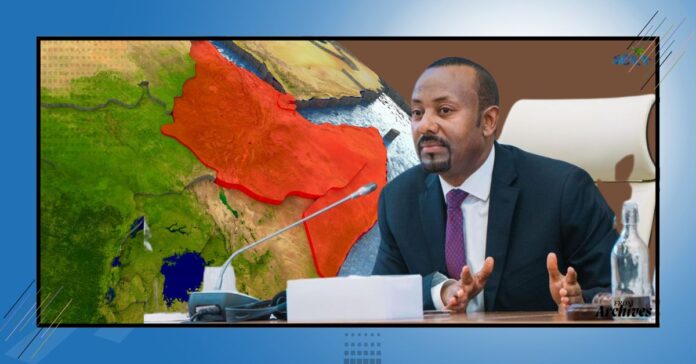It is essential to acknowledge that the security interests of one nation should not compromise the stability of others. The Horn of Africa represents a complex geopolitical landscape characterized by persistent instability and historically entrenched conflicts. These issues are frequently exacerbated by external interventions and the influence of foreign powers, which complicate resolution efforts and regional dynamics.
In a recent article for Al Jazeera, the former president of Ethiopia articulated a strong demand for regime change in Eritrea. He contended that the Eritrean government’s engagement in the various crises impacting the Horn of Africa is heavily influenced by the decisions of the current president. He urged global leaders to intervene and facilitate the removal of this regime, arguing that such action is essential for fostering regional stability and promoting the greater good.
When the Ethiopian government undertook military action against the Tigray People’s Liberation Front (TPLF) and sought support from Eritrea, the ex-president did not provide evidence to support claims against Eritrean leadership regarding their involvement in the Tigray conflict. Notably, during and in the immediate aftermath of the hostilities, high-ranking Ethiopian military officials, including the prime minister himself, acknowledged the vital contributions of Eritrean forces to the stabilization of Ethiopia. This raises a critical inquiry: how can a figure associated with a previous regime, which the current administration ousted, level accusations against Eritrea for involvement in a conflict that fundamentally pertains to Ethiopia’s internal affairs?
The Eritrean government has been implicated in Somali affairs, a claim that has not been explicitly refuted. However, the president’s assertion oversimplifies the situation. Eritrea positions itself as a facilitator for Somali autonomy in resolving its internal conflicts, firmly opposing any form of external military intervention in Somalia’s sovereignty. It’s important to note that the president is cognizant of Ethiopia’s 2006 military incursion into Somalia, which precipitated a protracted conflict and exacerbated instability, ironically culminating in the empowerment of the very terrorist factions that Ethiopia purportedly aimed to combat. Ethiopia’s engagement with Somalia has historically not been characterized by a pursuit of peace, unity, or prosperity for the Somali state; instead, it has been framed as a strategic concern, with Somalia primarily perceived as a security threat.
The president has notably failed to address the significant violation of international law reflected in the memorandum of understanding signed between his prime minister and the self-declared Republic of Somaliland. This action raises serious concerns about its implications for regional stability. Historically, Ethiopia has consistently engaged in strategies that undermine Somalia’s unity by providing military support to various factions and warlords. This support has perpetuated the division and fragility of the Somali state, allowing Ethiopia to exploit the resultant instability for its strategic advantage.
It is essential to highlight that the former president overlooks the pivotal ruling by the International Court of Arbitration regarding the border dispute between Eritrea and Ethiopia. During his tenure, he notably refused to implement this final and binding decision, continuing the illegal occupation of Eritrean territories. This raises serious questions about the legitimacy of his claims to champion peace and security while maintaining an unlawful presence in disputed areas.
Furthermore, the accusations directed toward Eritrea seem to reflect deeper issues within Ethiopia’s political landscape. Leaders in such positions must foster unity domestically rather than deflect blame onto neighboring countries for their shortcomings. Given the severity of the internal crisis facing Ethiopia, a more productive approach would entail focusing on strategies for resolving internal conflicts rather than engaging in inflammatory rhetoric aimed at external parties.
The instability of a single state can have a cascading effect on regional dynamics, with both interstate and intrastate conflicts prompting neighboring nations to either engage in direct military confrontations or escalate their involvement in proxy conflicts. A reductive narrative that assigns blame to a single nation while adhering to an antiquated dichotomy of good versus evil fails to address the underlying complexities of the situation. This approach may exacerbate tensions, fostering discord and mistrust that obstruct meaningful dialogue and cooperative efforts toward stability and conflict resolution.

